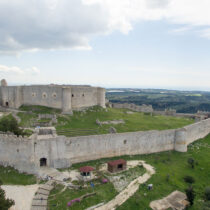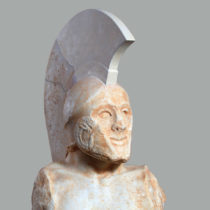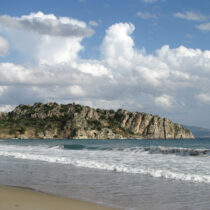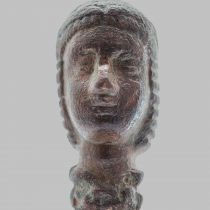Alexandria the Divine
The exhibition assembles papyri, archaeological objects and original manuscripts, which are among the most prestigious of the Medici collection.
47th Annual Meeting of the Canadian Archaeological Association
The CAA/ACA 2015 Organizing Committee announced that the 47th Annual Meeting of the Canadian Archaeological Association will be held at the Sheraton Hotel, St. John’s, Newfoundland and Labrador from April 29-May 3, 2015. The Organizing Committee invites all to participate in
Nails in egg whites, a dove’s foot in white wine…
A collection of 25 books detailing 17th century recipes and medical cures has gone on display at Cambridge University.
Memory and Learning in a Changing World
The conference "Memory and Learning in a Changing World" will take place on 15-17 September 2014 in Norway, at the Falstad Centre.
Associate Lecturer in Classics and Ancient History
The College wishes to recruit an Associate Lecturer (Education and Scholarship) to work with academics in support of the delivery of Classics and Ancient History programmes, and in particular Latin teaching.
Meet Changyuraptor yangi
A new raptorial dinosaur with exceptionally long feathering provides insights into dromaeosaurid flight performance.
More on the Moche ruler’s tomb
Archaeologists suggest that the set of sharpened metallic claws found in the tomb of the Moche ruler at Huaca de la Luna had a ritual use.
The world’s most expensive weed
An international team of researchers has found new evidence that our prehistoric ancestors had a detailed understanding of plants long before the development of agriculture.
Ötzi’s non-human DNA
Ötzi’s non-human DNA proves to be even more illuminating than the human part of it, new approach by a team of scientists from EURAC in Bolzano/Bozen and the University of Vienna reveals.
Tonga: a Pacific trade hub
Tonga served as a trade hub where people from across Polynesia traveled to exchange goods and political ideas. This was the result of a research conducted by Geoffrey Clarke of Australian National University and his team.
Glas: A vast ancient Mycenaean citadel
A team of archaeologists is excavating the remains of a vast ancient Mycenaean citadel, known as Glas or Kastro (castle).
Winged Victory of Samothrace is back at the Louvre
The Winged Victory of Samothrace has been reinstalled at the Louvre after a 10-month restoration.
Sotheby’s and eBay announce digital partnership
Yesterday, July 14, 2014, Sotheby’s and eBay issued a joint press release to announce digital partnership.
Wessex Gallery now open
More than 2,000 visitors from around the world attended the grand opening of Salisbury Museum’s new £2.4 million world-class Wessex Gallery of Archaeology on Saturday (12 July).
Violence and climate change in prehistoric Egypt and Sudan
The Skeletons of Jebel Sahaba go on show at the British Museum.
Meet the Gomphothere
The discovery suggests that the Clovis – the earliest widespread group of hunter-gatherers to inhabit North America – likely hunted and ate gomphotheres.
Caravaggio to be buried in Tuscan memorial park
On July 18 the great influential painter will be buried near the Tuscan coastal town of Porto Ercole in a memorial park due to open on that day.
Moche culture artefacts unearthed at Huaca de la Luna
Interesting Moche culture artefacts were unearthed during excavations at the Huaca de la Luna, in a previously unknown tomb belonging to a Moche ruler. The tomb contained the remains of an adult male. The objects found within the tomb indicate the elite
Sacred Journeys
Invitation of abstracts for the 3nd annual Symposium to be held September 26-28, 2014 at the College of William & Mary, Williamsburg, Virginia.
Prehistoric ‘bookkeeping’ continued long after invention of writing
Archaeologists have uncovered a large number of clay tokens that were used as records of trade until the advent of writing, or so it had been believed.
Hellenic Maritime Museum
Presentation of the Hellenic Maritime Museum, its objectives, collections and programmes.
The mosque of Hala Sultan in Larnaka receives TripAdvisor Certificate of Excellence
The mosque of Hala Sultan in Larnaka, Cyprus has received the certificate of Excellence for 2014 by the well-known and established travel website TripAdvisor, used by millions of travelers around the world.
Napoleon and Josephine’s marriage certificate goes under the hammer
The marriage certificate that preceded the tying of the knot between Napoleon Bonaparte and his first love, Josephine will go under the hammer next September in France.
Child skulls as gifts for the gods
Children's skulls found at the edges of Bronze Age settlements may have been a gift for the local lake gods to ward off flooding, according to a recently published study.




























